A well-known Kilkenny-based farming business, O’Shea Farms first embraced renewable energy technology in 2015 when it installed solar panels on the rooftops of two of its potato stores. The solar panels now supply 10% of the total energy requirements of the business.
Farming across 1,600 acres in south Kilkenny, the O’Shea family grows a mixture of cereals, carrots and potatoes, as well as milking a large dairy herd.
Growing Rooster, Kerr’s Pink, Golden Wonders and a number of white varieties, O’Shea Farms stores the potatoes in seven specialised potato cold stores to ensure the crop is supplied to the market all year round. The business also supplies fresh carrots for 10 months of the year.
The business shares its premises with its sister company, fruit and vegetable wholesaler Iverk Produce, which packs and distributes seasonal Irish fruit and vegetables throughout Ireland. O’Shea Farms, along with Iverk Produce, packages 37,000t of fresh potatoes and carrots from 30 Bord Bia approved growers, as well as their own homegrown produce to supply the Irish market year round.
The companies employ over 190 people as well as an additional 30 to 40 seasonal workers and last year signed a deal to provide Aldi with €70m worth of Irish-grown potatoes over the course of three years.

A refrigeration ventilation unit on one of the cold stores.
Energy usage on O’Shea Farms is variable. The majority of energy requirements are taken up by the potato store refrigerator which stores up to 12,500t of the crop, multiple packing lines and to a lesser extent, carrot, fruit and vegetable storage.
As a rule of thumb, it takes refrigeration capacity of around 70kWh to store 1,000t of potatoes. Temperatures in the stores are held at around 2.9°C to maintain a tuber temperature of around 2.5°C. Storing potatoes at these temperatures is essential in order to prevent sprouting and deter the onset of diseases such as silver scuff.
The business has implemented numerous measures to increase energy efficiency over the years including insulating the potato stores with 100mm insulation on side walls and 120mm on rooftops, switching to LED lighting and installing energy-efficient motors.
After careful consideration and exploring the potential for numerous renewable energy technologies such as wind and anaerobic digestion, the search to improve energy efficiency, as well as improving the overall sustainability of the business led to the decision to install solar panels in the farmyard.
After consultation with the Carlow/Kilkenny Energy Agency, planning permission was lodged and subsequently granted. The business then put the job to supply and install the system out for tender.
Rooftop solar panels
The solar panels were installed in October 2015 on top of box profile rooftops on two of the potato stores. Solar Electric Ireland won the tender and installed the system.
The 960 PV 260W Conergy Modules, along with eight 25,000 TL SMA inverters, were expected to produce 208 MWh/year once operational. This is around 10% of O’Shea Farms and Iverk Produce’s power requirements – enough to power 40 homes. Although installed in 2015, power generation didn’t begin until April 2016 due to a number of safety measures which needed to be installed before they could connect to the grid. 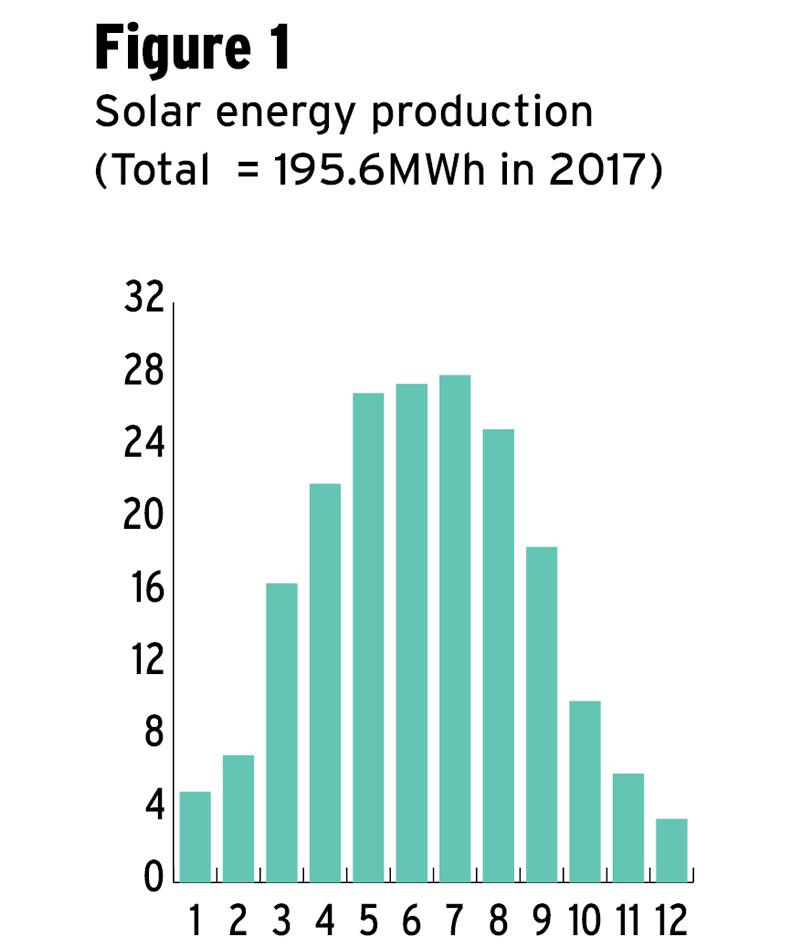
Through the Sustainable Energy Authority of Ireland’s Better Energy Community (BEC) programme, the business availed of an 18% grant on the cost of the project. Before installation, a feasibility study anticipated a payback period of seven to eight years. This was based on average electricity cost of 0.12c/kWh which would result in a saving of €25,000/annum.
However, since the time of installation the average price paid by the business for electricity was in the region of 0.9c/Kwh, resulting in a saving of €19,000/annum and pushing the payback period out to 10 to 11 years. Energy production can be monitored using the eviShine app and in 2017, solar energy production peaked at 27.68kWh.
The panels are guaranteed for 25 years and while there is a slight drop in performance as the equipment ages, O’Sheas still expect the panels to work at 85% efficiency by the end of their lifespan.
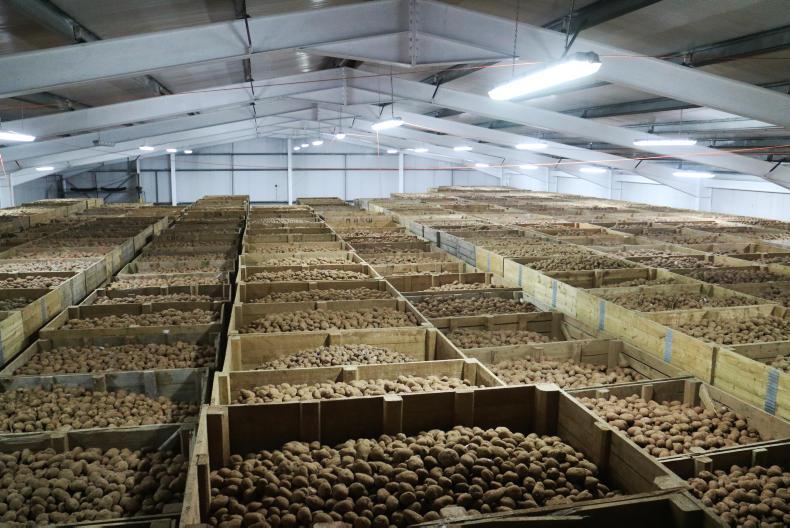
One of the potato stores located on site.
The solar panels are connected to the national grid. However, the business is not paid for any unit to energy which is exported to the grid. While every kWh of energy produced by the panels is currently consumed by the business, if sufficient incentives were in place to export excess energy to the grid, O’Sheas stated that they may consider further solar installations in the future.
Read more
Meath residents concerned over 235ac solar farm
New connection rules for renewables
A well-known Kilkenny-based farming business, O’Shea Farms first embraced renewable energy technology in 2015 when it installed solar panels on the rooftops of two of its potato stores. The solar panels now supply 10% of the total energy requirements of the business.
Farming across 1,600 acres in south Kilkenny, the O’Shea family grows a mixture of cereals, carrots and potatoes, as well as milking a large dairy herd.
Growing Rooster, Kerr’s Pink, Golden Wonders and a number of white varieties, O’Shea Farms stores the potatoes in seven specialised potato cold stores to ensure the crop is supplied to the market all year round. The business also supplies fresh carrots for 10 months of the year.
The business shares its premises with its sister company, fruit and vegetable wholesaler Iverk Produce, which packs and distributes seasonal Irish fruit and vegetables throughout Ireland. O’Shea Farms, along with Iverk Produce, packages 37,000t of fresh potatoes and carrots from 30 Bord Bia approved growers, as well as their own homegrown produce to supply the Irish market year round.
The companies employ over 190 people as well as an additional 30 to 40 seasonal workers and last year signed a deal to provide Aldi with €70m worth of Irish-grown potatoes over the course of three years.

A refrigeration ventilation unit on one of the cold stores.
Energy usage on O’Shea Farms is variable. The majority of energy requirements are taken up by the potato store refrigerator which stores up to 12,500t of the crop, multiple packing lines and to a lesser extent, carrot, fruit and vegetable storage.
As a rule of thumb, it takes refrigeration capacity of around 70kWh to store 1,000t of potatoes. Temperatures in the stores are held at around 2.9°C to maintain a tuber temperature of around 2.5°C. Storing potatoes at these temperatures is essential in order to prevent sprouting and deter the onset of diseases such as silver scuff.
The business has implemented numerous measures to increase energy efficiency over the years including insulating the potato stores with 100mm insulation on side walls and 120mm on rooftops, switching to LED lighting and installing energy-efficient motors.
After careful consideration and exploring the potential for numerous renewable energy technologies such as wind and anaerobic digestion, the search to improve energy efficiency, as well as improving the overall sustainability of the business led to the decision to install solar panels in the farmyard.
After consultation with the Carlow/Kilkenny Energy Agency, planning permission was lodged and subsequently granted. The business then put the job to supply and install the system out for tender.
Rooftop solar panels
The solar panels were installed in October 2015 on top of box profile rooftops on two of the potato stores. Solar Electric Ireland won the tender and installed the system.
The 960 PV 260W Conergy Modules, along with eight 25,000 TL SMA inverters, were expected to produce 208 MWh/year once operational. This is around 10% of O’Shea Farms and Iverk Produce’s power requirements – enough to power 40 homes. Although installed in 2015, power generation didn’t begin until April 2016 due to a number of safety measures which needed to be installed before they could connect to the grid. 
Through the Sustainable Energy Authority of Ireland’s Better Energy Community (BEC) programme, the business availed of an 18% grant on the cost of the project. Before installation, a feasibility study anticipated a payback period of seven to eight years. This was based on average electricity cost of 0.12c/kWh which would result in a saving of €25,000/annum.
However, since the time of installation the average price paid by the business for electricity was in the region of 0.9c/Kwh, resulting in a saving of €19,000/annum and pushing the payback period out to 10 to 11 years. Energy production can be monitored using the eviShine app and in 2017, solar energy production peaked at 27.68kWh.
The panels are guaranteed for 25 years and while there is a slight drop in performance as the equipment ages, O’Sheas still expect the panels to work at 85% efficiency by the end of their lifespan.

One of the potato stores located on site.
The solar panels are connected to the national grid. However, the business is not paid for any unit to energy which is exported to the grid. While every kWh of energy produced by the panels is currently consumed by the business, if sufficient incentives were in place to export excess energy to the grid, O’Sheas stated that they may consider further solar installations in the future.
Read more
Meath residents concerned over 235ac solar farm
New connection rules for renewables




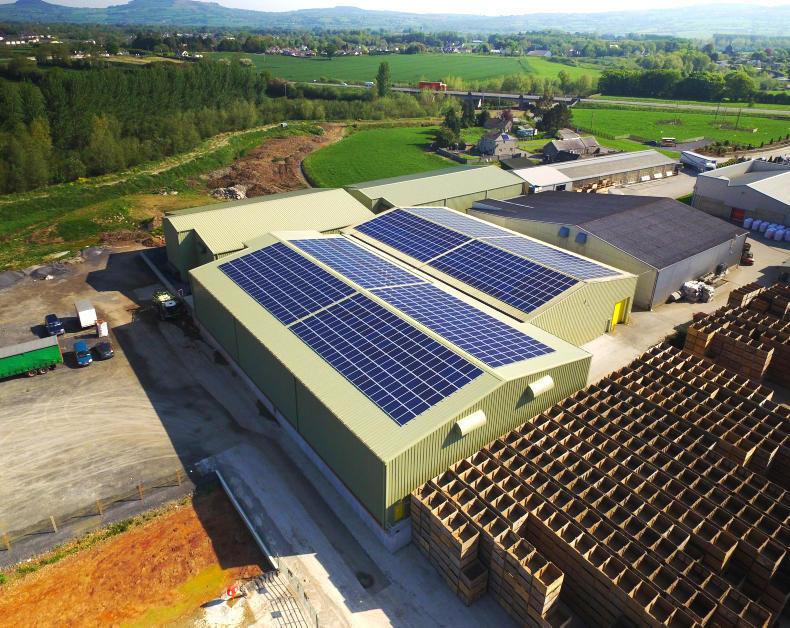




 This is a subscriber-only article
This is a subscriber-only article





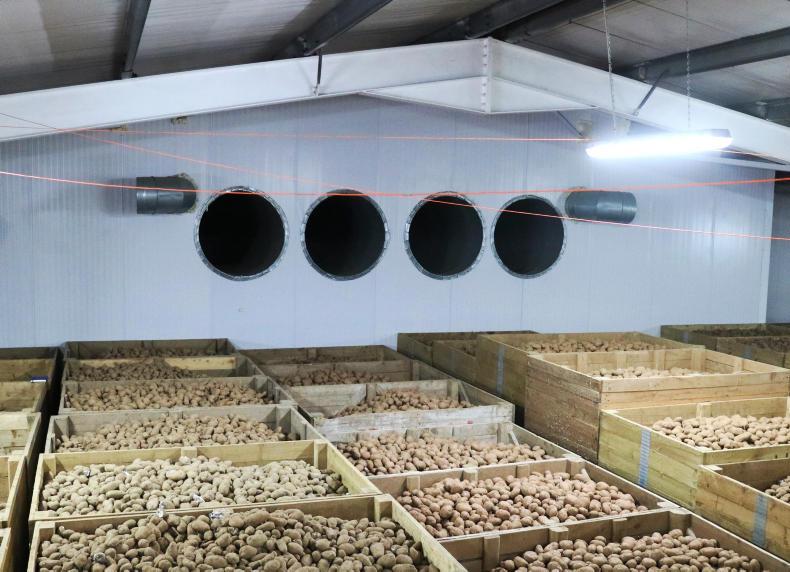
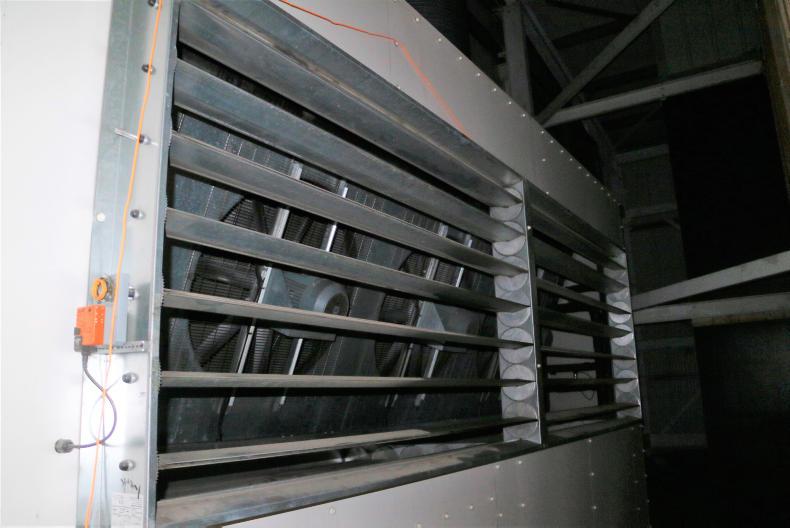


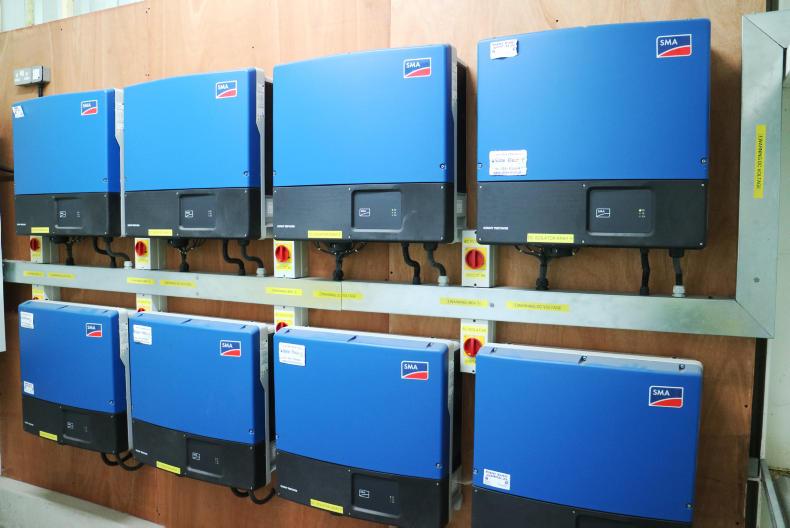





SHARING OPTIONS: